Understanding Guinea Pig Teeth: A Comprehensive Guide
Are you one of the many guinea pig owners out there wondering why their furry friend's smile looks so unique? Well, you've come to the right place - it's time to get to grips with guinea pig teeth and find out how those chompers work.
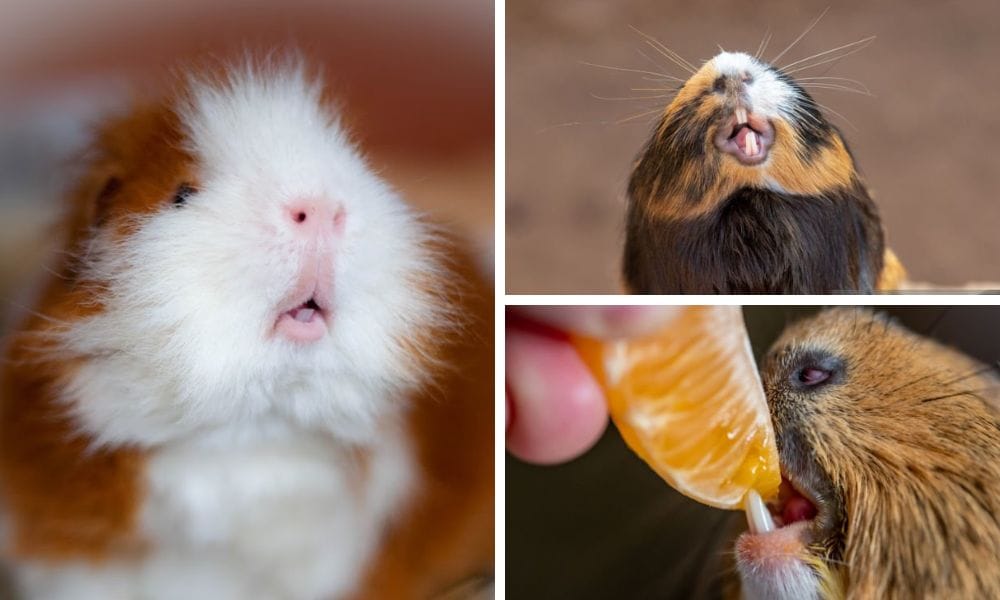
Key Takeaways:
- Guinea pigs' teeth are open-rooted, meaning they constantly grow throughout their lives and require a proper diet to maintain health.
- Dental problems in guinea pigs can lead to serious health issues; thus, regular check-ups and a balanced diet are crucial.
- Early detection and treatment of dental issues can prevent severe complications and ensure the well-being of your furry friend.
Guinea pigs are adorable, sociable creatures that make fantastic pets for people of all ages. One of the most distinctive features of these furry friends is their teeth. Unlike human teeth, guinea pig teeth grow continuously, which can lead to unique health challenges. In this article, we'll dive deep into the world of guinea pig teeth, exploring how to keep them healthy, what problems can arise, and how to prevent or treat these issues.
The Anatomy of Guinea Pig Teeth
Guinea pigs have a set of 20 teeth, which include incisors, premolars, and molars. Unlike other animals, they lack canine teeth, creating a gap called a diastema between their front and lower cheek teeth. The incisors are the most visible and are used primarily for cutting food. The premolars and molars, located at the back of the guinea pig's mouth, are crucial for grinding. All of these teeth are open-rooted, meaning they are designed to constantly grow throughout the guinea pig's whole life.
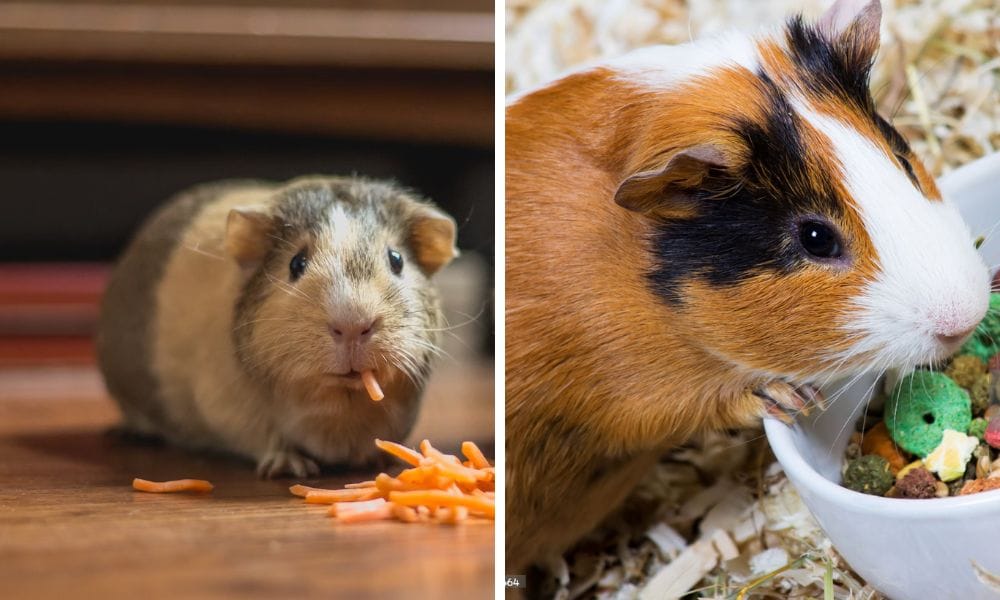
The Importance of a Balanced Diet
A guinea pig's diet plays a pivotal role in maintaining dental health. High-quality hay, such as timothy hay or orchard hay, should be the cornerstone of their diet. This is not only because it provides essential nutrients but also because the constant chewing helps wear down their teeth, preventing overgrowth. Additionally, guinea pigs require enough vitamin C in their diet, as they cannot produce it themselves. A deficiency can lead to dental disease among other health issues.
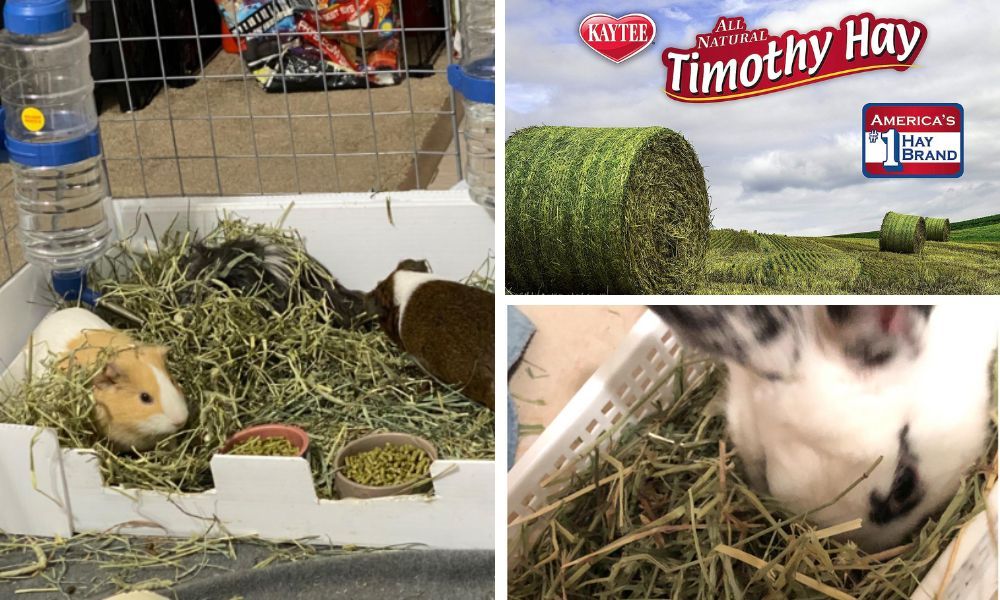
Common Dental Problems in Guinea Pigs
Overgrown teeth are one of the most common dental problems faced by many guinea pigs. When guinea pig teeth grow too long, they can cause mouth sores, weight loss, and difficulty eating properly. Other forms of dental issues include tooth decay, loose teeth, and sharp spurs that can cut into the guinea pig's mouth or tongue. These conditions can be painful and, if left untreated, may require serious interventions such as tooth extraction under general anaesthesia.
Preventing Dental Disease
Preventing dental disease in guinea pigs is generally easy and revolves around providing the right diet and regular check-ups. Ensuring that your guinea pig has access to good quality hay at all times is the first step. This will help keep their teeth short and prevent overgrowth. Regular dental check-ups with a vet can help accurately assess the health of your guinea pig's teeth and catch any issues early before they become advanced cases.
Treatment Options for Dental Issues
When dental problems are detected early, the treatment plan is often straightforward. Mild cases of overgrown teeth can be carefully corrected by having the teeth trimmed by a professional. In more severe cases, where there are mouth sores or an inability to eat properly, a vet may need to perform more complex procedures. It's important to follow the vet's treatment plan to cure permanently or manage the dental health of your guinea pig.
Lifespan of Guinea Pig Teeth
Guinea pigs' teeth are ever-growing, which means they require constant maintenance to stay healthy. Unlike humans, whose teeth reach a certain size and stop growing, a guinea pig's teeth will continue to elongate throughout their life. This adaptation is perfect for their natural diet, which consists of fibrous plants that wear down their teeth. However, in a domestic setting, it's crucial to provide high-quality hay, which acts as a natural abrasive to keep their teeth short. Without this, the teeth can overgrow, leading to a common form of guinea pig dental disease.
To ensure your guinea pig's teeth remain at a healthy length, regular check-ups are essential. During these check-ups, a vet can carefully correct any overgrowth and prevent tooth problems from worsening. If caught early, issues like elongated teeth can be managed without significant intervention. However, if left unchecked, the teeth can grow into the guinea pig's mouth, creating a little gap where food can get trapped, potentially leading to severe health issues. Therefore, incorporating regular dental procedures into your pet's care routine is vital for maintaining healthy guinea pigs.
Dental Anatomy and Growth Patterns
Guinea pigs' teeth are open-rooted, which means they grow continuously throughout their lives. This is why it's crucial for a healthy guinea pig to have access to high-quality hay, which helps wear down their teeth and keep them at an appropriate length. The incisors, which are the most visible teeth in a guinea pig's mouth, are used for cutting food, while the molars in the back are used for grinding. If a guinea pig's diet lacks the necessary abrasiveness, their teeth can become overgrown, leading to a host of guinea pig teeth problems.
Unlike other animals, guinea pigs do not have canines. Instead, there is a gap known as a diastema between their incisors and molars. This unique dental structure requires special attention to ensure that all teeth, including those in the lower jaws, wear evenly. Regular check-ups with a vet can help spot any irregularities in their dental anatomy, such as long teeth that could indicate a problem with their diet or an underlying condition that may require a dental procedure.
Monitoring and Maintenance for Optimal Dental Health
Monitoring your guinea pig's dental health is a proactive way to prevent guinea pig's dental disease. It's important to observe your pet's eating habits; a reluctance to eat or a preference for softer foods may be a sign of discomfort in the guinea pig's mouth. Additionally, drooling or a wet chin can indicate that the guinea pig's teeth are too long or misaligned, causing difficulty in chewing or pain. These symptoms should prompt a visit to the vet for a closer examination.
Regular maintenance of your guinea pig's teeth involves providing a diet rich in fibrous materials. High-quality hay should be the cornerstone of a guinea pig's diet, as it provides the necessary roughage to keep their teeth short and healthy. Chew toys designed for rodents can also help maintain proper tooth length and prevent the worst affected cases of dental issues. Remember, a healthy guinea pig is a happy guinea pig, and dental care is a key component of their overall well-being.
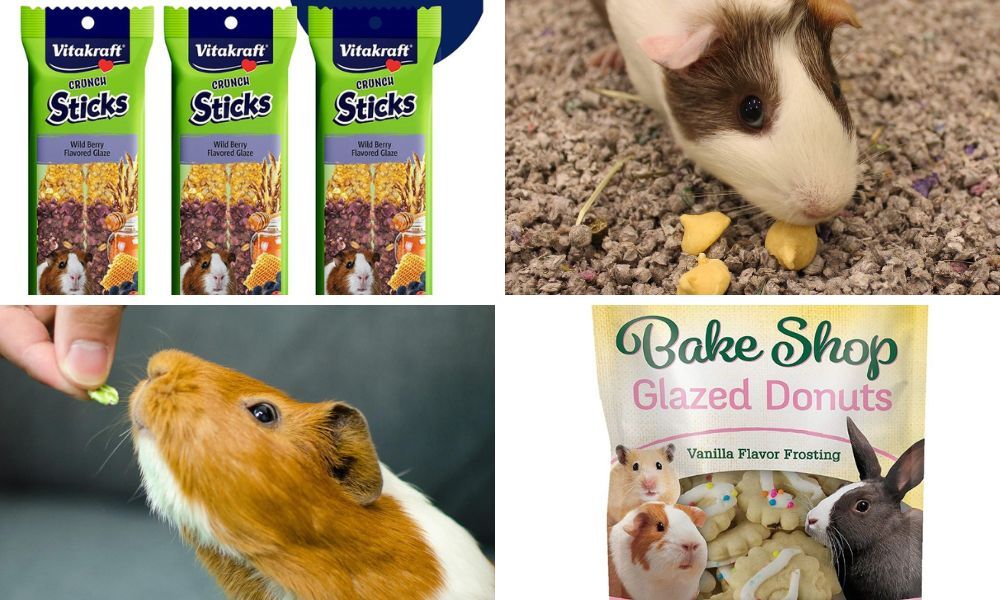
The Right Chew: Selecting Appropriate Toys and Treats
When it comes to keeping guinea pig teeth healthy, the right chew toys and treats play a pivotal role. These items are designed to mimic the resistance guinea pigs would encounter while feeding in the wild, helping to keep their teeth short and preventing dental issues. Look for toys made from safe, untreated wood, or hard vegetables like carrots that can provide the necessary resistance to wear down their teeth. Avoid plastic toys or those with small parts that could cause a choking hazard or be ingested, leading to digestive problems.
In addition to toys, treats can also contribute to dental health. However, it's important to choose treats that are not only delicious but also beneficial for your guinea pig's teeth. High-fiber treats such as Timothy hay cubes or specially formulated dental chews can help maintain tooth length and strength. Remember, treats should be given in moderation to avoid obesity and other health issues. By providing a variety of appropriate chew toys and treats, you can help ensure your guinea pig's mouth stays healthy, and their dental care is on the right track.
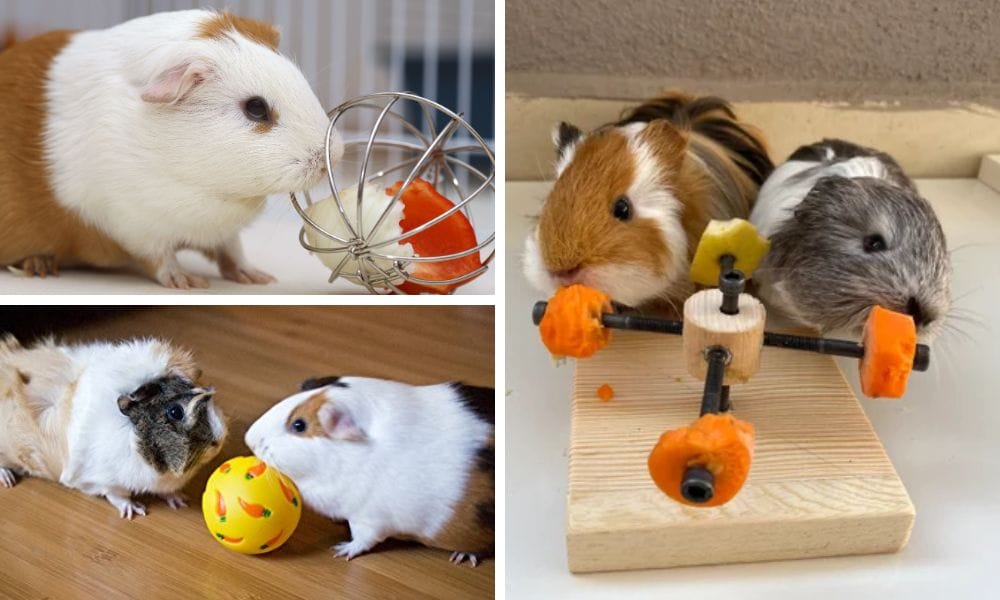
The Role of Vitamin C in Dental Health
Vitamin C is crucial for the overall health of guinea pigs, including their dental health. A lack of vitamin C can lead to scurvy, which can cause dental issues among other health problems. To ensure your guinea pig gets enough vitamin C, provide them with a balanced diet that includes fresh vegetables and fruits or supplements as recommended by a vet.
Signs of Dental Problems in Guinea Pigs
Recognizing the signs of dental problems in guinea pigs can help you seek treatment before the issues become severe. Some signs to look out for include drooling, difficulty eating, weight loss, and changes in behavior such as reduced activity or vocalizations. If you notice any of these symptoms, it's important to take your guinea pig to the vet for a thorough examination.
The Connection Between Dental Health and Digestive System
The dental health of guinea pigs is closely linked to their digestive system. Since their teeth are used to grind food into small, digestible pieces, any problem with the teeth can lead to digestive issues. Overgrown teeth, for example, can prevent a guinea pig from grinding their food properly, which can result in gastrointestinal stasis or other digestive problems.
How to Check Your Guinea Pig's Teeth
Regularly checking your guinea pig's teeth can help you spot any potential problems early on. You can gently open your guinea pig's mouth to inspect the front teeth for any signs of overgrowth or abnormalities. However, checking the back teeth is more challenging and should be done by a vet during regular check-ups.
The Risks of Not Addressing Dental Issues
Ignoring dental problems in guinea pigs can lead to a host of serious health issues. Overgrown teeth can cause injuries inside the mouth, leading to infections or abscesses. Additionally, if a guinea pig is unable to eat properly due to dental pain, it can quickly lead to malnutrition and even be life-threatening.
When to Seek Veterinary Care
If you suspect that your guinea pig has dental problems, it's important to seek veterinary care immediately. A vet can provide a proper diagnosis and discuss the best treatment options for your pet. In some cases, such as tooth extraction or the treatment of abscesses, your guinea pig may require surgery under general anaesthesia.
Summary
Guinea pig teeth are unique in that they constantly grow and require special care to prevent dental disease. A balanced diet rich in high-quality hay and sufficient vitamin C is essential for maintaining healthy teeth and preventing overgrowth. Regular check-ups with a vet are crucial for early detection and treatment of dental issues. By understanding the anatomy of guinea pig teeth, common dental problems, and how to prevent and treat them, you can ensure your furry friend enjoys a happy and healthy life.
FAQ Section
Q: How often should guinea pig teeth grow? A: Guinea pig teeth grow continuously throughout their life. It's important to provide them with a diet that naturally wears down their teeth to prevent overgrowth.
Q: What should I do if my guinea pig's teeth are overgrown? A: If you notice that your guinea pig's teeth are overgrown, you should take them to a vet as soon as possible. The vet can trim the teeth and provide guidance on preventing future overgrowth.
Q: Can dental problems in guinea pigs be cured permanently? A: While some dental problems can be managed with proper care and regular vet visits, others may require ongoing treatment. The key is early detection and intervention to prevent serious complications.

